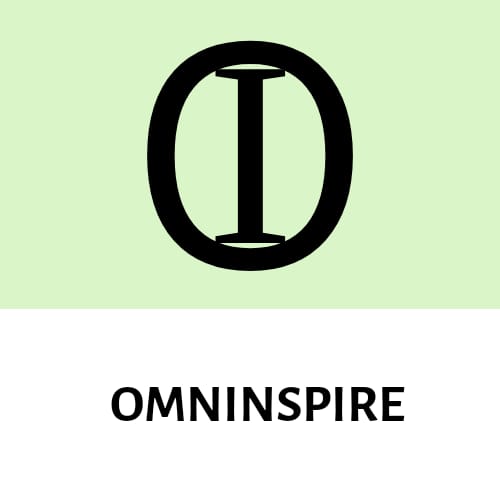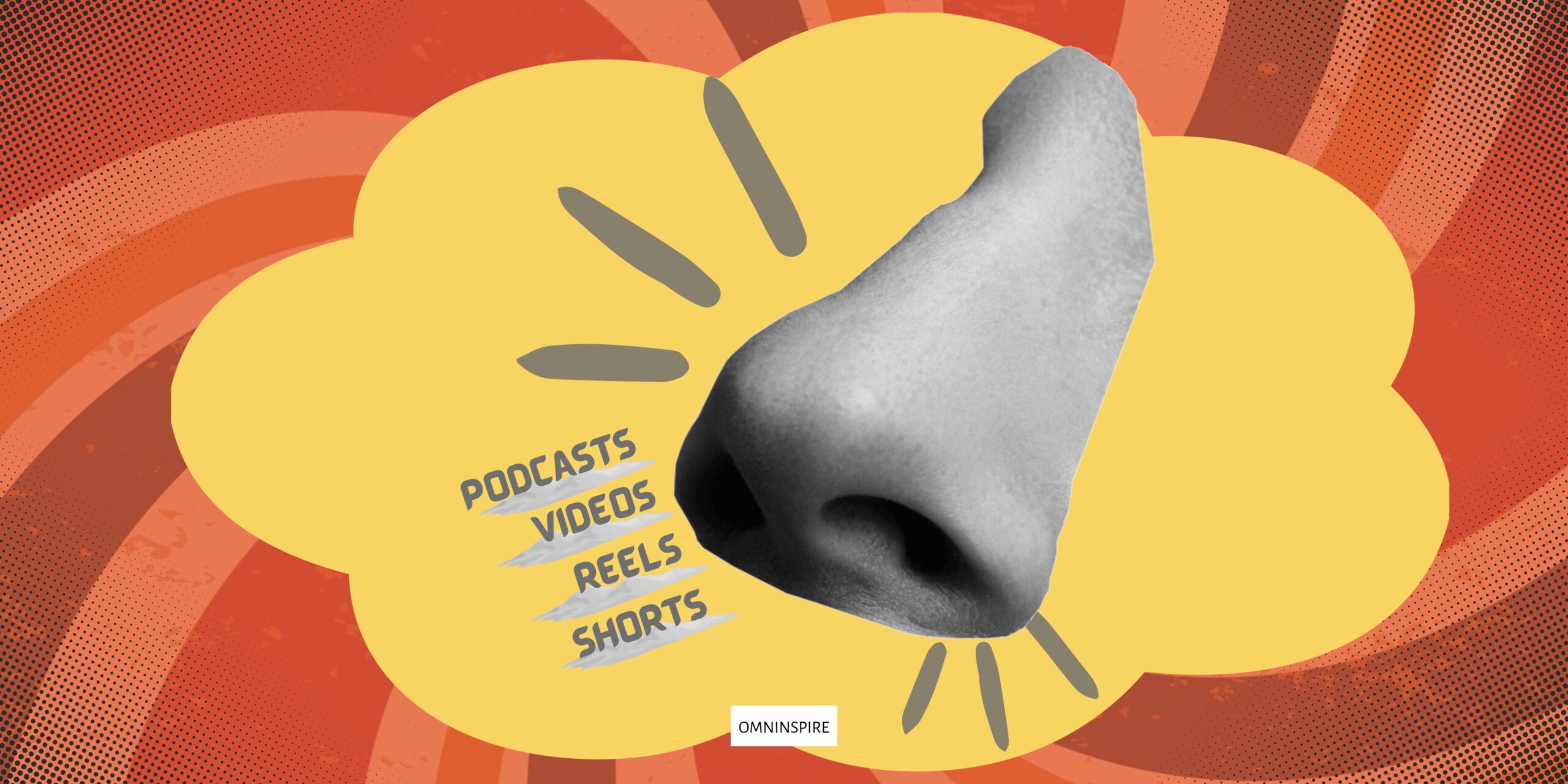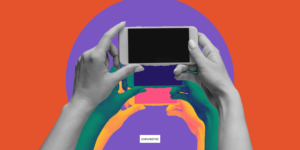A new addiction is gripping the world. Unlike alcohol, nicotine, or illegal substances, this one is legal, accessible, and socially accepted. It’s content—We are hooked on content.
From Shorts, Reels & Endless Feeds, people are glued to their screens. The addiction is undeniable. Social media is no longer just entertainment; rather, it has transformed into a mind-altering substance that keeps us coming back for more.
Apps like Instagram, TikTok, and YouTube have perfected the art of engagement. The more we scroll, the harder it becomes to stop. But what exactly is happening to our brains? Why can’t we pull away from our screens, even when we want to?
In this article, we dive deep into the content crisis—a modern-day epidemic that is silently affecting both mental and physical health. The time has come to break free from this digital trap.
The Dopamine Trap: How Content Hijacks Your Brain
Have you ever noticed how difficult it is to watch just one video? One reel turns into ten. Ten turns into an hour. And before you know it, half the day has disappeared.
This isn’t a coincidence. Social media platforms are intentionally designed to hijack our minds. They function much like addictive drugs—flooding the brain with dopamine, the chemical responsible for pleasure and reward.
Why Are We So Hooked on Content?
1. Dopamine on Demand
Every like, comment, and share releases a burst of dopamine. This gives a fleeting sense of happiness, leaving us craving more. Consequently, the cycle continues, keeping us trapped in an endless loop.
2. Reels, Shorts, and the Death of Attention
Short-form content is designed to be fast, engaging, and addictive. Over time, this rewires the brain to seek instant gratification. As a result, focusing on longer content—or even real-life conversations—becomes increasingly difficult.
3. Scrolling Into Oblivion
The infinite scroll is one of the most dangerous features of social media. There’s no natural stopping point, which tricks the brain into believing that something better is just one swipe away. So, we continue scrolling… endlessly.
4. Fear of Missing Out (FOMO)
Social media thrives on urgency. Trending topics, viral challenges, and breaking news create a sense of pressure. We feel the need to stay constantly updated, fearing we might miss something important.
Over time, these patterns reshape the brain. Concentration weakens, relaxation becomes difficult, and real-life experiences lose their appeal. The result? A society hooked on content, struggling to disconnect.
The Physical & Mental Toll of Endless Feeds
Social media addiction doesn’t just affect the mind. It takes a serious toll on the body as well. The consequences are real, and they are far-reaching.
How It Affects Mental Health
Excessive social media use is closely linked to anxiety, depression, and chronic stress. But what makes it so harmful?
- Comparison Culture – People only showcase their best moments online. Seeing these “perfect” lives can lead to self-doubt, insecurity, and low self-esteem.
- Negative News Overload – Bad news spreads faster than good. Constant exposure to negativity increases stress, fear, and hopelessness.
- Digital Burnout – The pressure to always stay updated drains mental energy. Over time, constant scrolling leads to exhaustion, emotional numbness, and even cognitive decline.
How It Affects Physical Health
While social media impacts mental health, it also disrupts physical well-being in several ways.
- Sleep Disruption – Blue light from screens interferes with melatonin production, making it harder to fall asleep and stay asleep.
- Neck & Back Pain – Hours of poor posture while scrolling lead to long-term spinal issues, muscle strain, and discomfort.
- Eye Strain & Headaches – Prolonged screen exposure weakens vision, causing headaches, dryness, and blurred sight.
- Sedentary Lifestyle – More screen time means less physical activity. This increases the risk of obesity, heart disease, and other chronic illnesses.
Despite these alarming consequences, people remain hooked on content, prioritizing screens over self-care.
Why Social Media is Hijacking Our Lives
Big Tech isn’t just aware of this addiction—it profits from it. The longer users stay on these platforms, the more advertisements they see. That’s why tech companies do everything in their power to keep people hooked on content.
How Platforms Keep You Hooked On Content
- Algorithms Track Your Behavior – Social media learns your habits, interests, and patterns. It then tailors content to keep you engaged longer.
- Doom Scrolling is Encouraged – Negative news generates higher engagement than positive content. As a result, platforms prioritize distressing stories to keep users scrolling.
- Viral Challenges & Trends – Social media thrives on urgency. Trending challenges create a fear of missing out, compelling users to check their feeds constantly.
- Endless Notifications – Every buzz, ping, and alert draws users back into the digital world, making it harder to disconnect.
The goal? Maximize your screen time.
The result? A society that is increasingly distracted, addicted, and overwhelmed.
Breaking Free: Get Yourself Un-Hooked on content
Is it possible to escape?
Yes. Escaping social media addiction is possible. However, it requires conscious effort, discipline, and intentional habits.
- Set Strict Screen Time Limits
Monitor your daily screen time. Set app usage limits to reduce unnecessary scrolling and regain control over your time. - Turn Off Notifications
Notifications are designed to distract. Disabling them helps you focus and prevents constant interruptions. - Take Regular Social Media Detoxes
Try going offline for a day, a weekend, or even a full week. Many people report feeling happier, calmer, and more productive after detoxing from social media. - Prioritize Real-World Activities
Replace digital consumption with real-life experiences. Read books, engage in hobbies, exercise, or spend quality time with friends and family. - Be Mindful of Your Consumption
Before watching content, ask yourself: “Is this adding value to my life?” If the answer is no, it’s time to log off.
These small but powerful changes can help break the addiction cycle and restore balance to your life.
The Future: Will We Ever Escape the Content Crisis?
The digital world is evolving rapidly. AI, virtual reality, and even more immersive content are on the rise. Without boundaries, this addiction will only intensify. However, there is hope. Awareness is increasing. More people are recognizing the dangers of excessive social media use. Governments are discussing regulations. Digital well-being tools are becoming more accessible.
Ultimately, the decision lies with us. Will we continue down the path of Shorts, Reels & Endless Feeds, or will we reclaim our time, focus, and mental well-being?
Reclaim Your Mind
We are living in a digital epidemic. Social media is hijacking our lives, consuming time, attention, and well-being. The content crisis is real, and it’s harming both our mental and physical health.
But we are not powerless. By setting boundaries, reducing screen time, and choosing real-world interactions over digital distractions, we can break free. It’s time to unplug. Time to reclaim our focus. Time to choose real life over the endless scroll.
Don’t be a slave to the algorithm. Take control. Be mindful, Be present, Be free.







